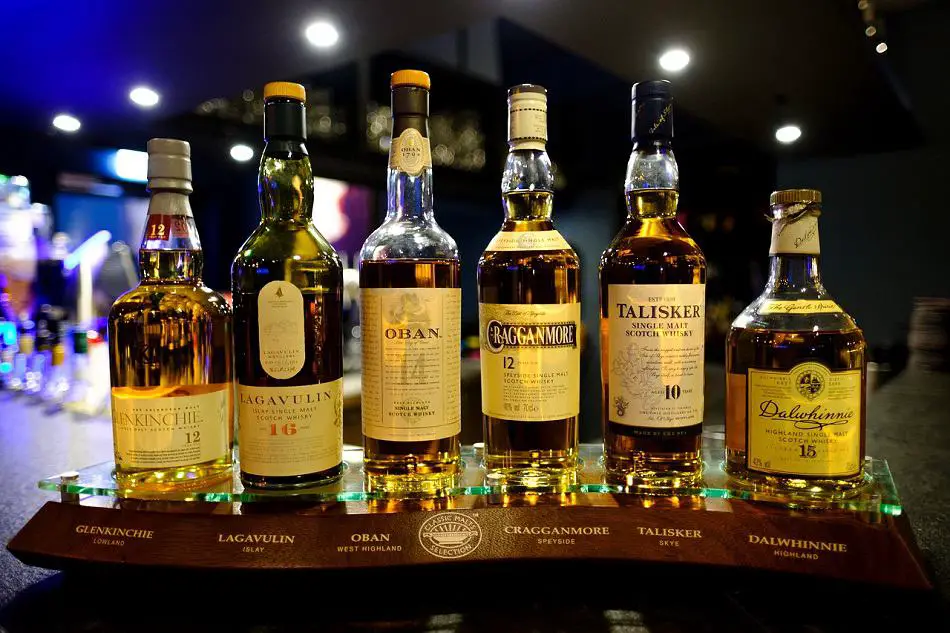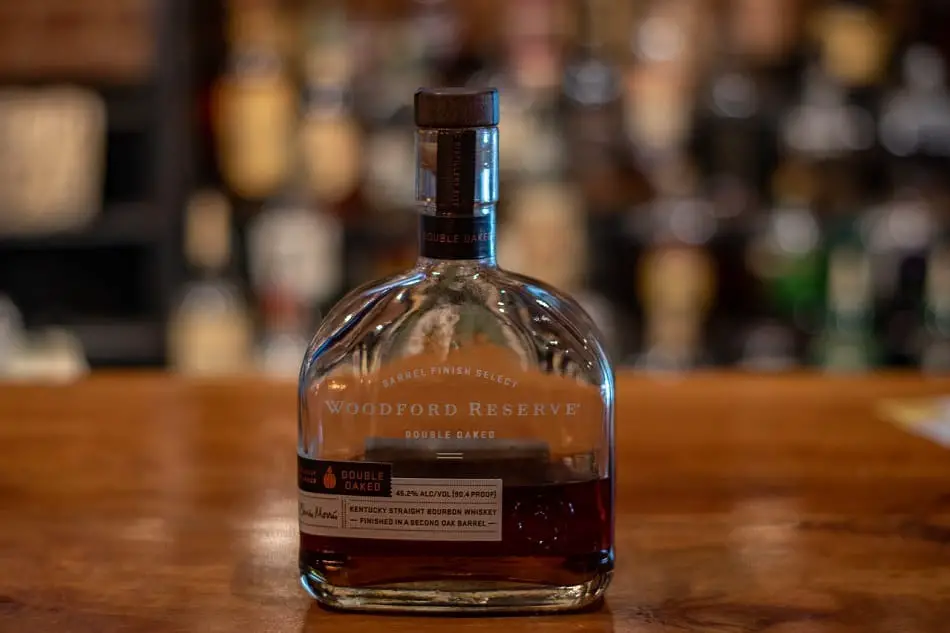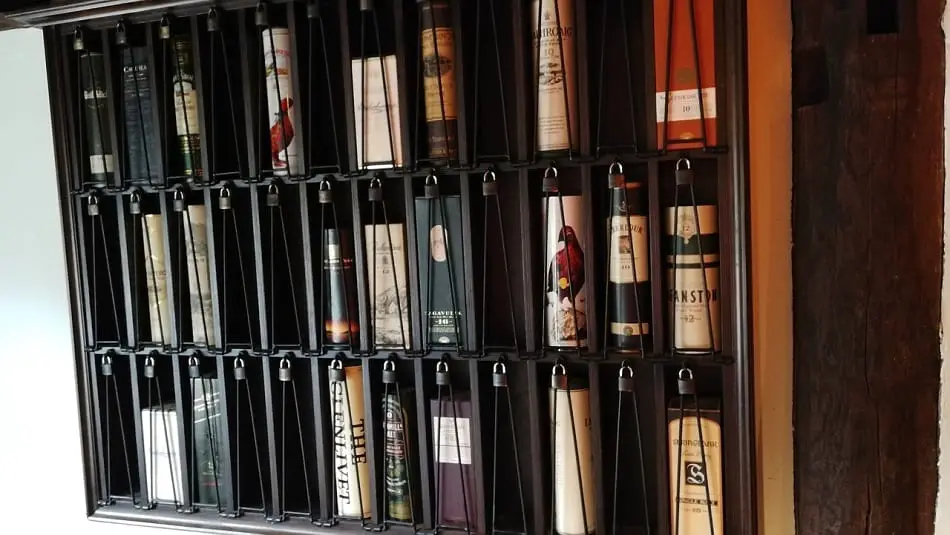Whiskey is delicious and expensive, so every drop is precious. This causes many people to wonder whether whiskey evaporates and how they can stop it. I however, first thought about it when I was pouring myself a drink and realised that the bottle seemed emptier than I remembered. My first thought was, ‘does whiskey evaporate?’ My second thought was, ‘probably’. My third thought was, ‘Ok, but does whiskey evaporate that quickly?’ My fourth thought was, ‘probably not‘.
Turns out you can confuse someone else drinking your whiskey with evaporation, but not if they drink too much.
Of course, whiskey like any other liquid does evaporate. It evaporates out of the barrels during the years or even decades long aging process and it evaporates from opened bottles during the months long drinking process. It even evaporates from sealed bottles, though obviously at a much slower rate.
There’s not much that can be done about whiskey evaporating out of the barrels, and there’s no need to be concerned about whiskey evaporating from opened bottles even though it occurs at a faster rate than from closed bottles, because you’ll be busy worrying about oxidation ruining your whiskey first. Besides, even the opened bottles’ faster rate of evaporation is quite slow so if you finish sealed or unsealed bottles in a couple of years, you’re not going to notice the loss.
The only real concern when it comes to whiskey evaporating is if you’re a collector who stores whiskey bottles long-term. Evaporation can be quite significant over decades especially if its exacerbated by poor storage conditions. Storing your whiskey properly and reinforcing the seal to make it 100% airtight will stop your whiskey evaporating.
Let’s look at all this in more detail.

The Huge Volume of Whiskey That Evaporates Out of the Barrels
Whiskey is aged / matured for years or even decades, during which plenty of whiskey is lost to evaporation. Wood is a porous material that expands and contracts, so the whiskey can easily evaporate out regardless of how well the barrel is produced and sealed.
It is a terrible loss prompting me to suggest we stop this part of the whiskey making process. The only problem is that it’s during the aging stage where whiskey acquires 80% of its flavor, so we’re in a no-win situation. We can either save the whiskey but lose the flavor or gain the flavor but lose the whiskey.
There’s nothing that can be done apart from call the whiskey that’s lost to evaporation the angels’ share as a cute distraction from a real problem.
And lest you think I’m making a mountain out of a molehill let’s have a quick look at the scope of this tragedy. The amount of whiskey that’s lost is anywhere from 2% – 10% of the barrel (size, year of storage, method of storage and climate of location dependent). And that’s just per year! And that’s just per year! No, that wasn’t a typo. I just thought it was so important that it was worth mentioning twice.
During the entire maturation process a barrel could lose 30% – 40% of its whiskey to evaporation
According to statista.com that recorded the amount of whiskey produced in Scotland between 2000 and 2015, the lowest whiskey producing year, 2012, produced almost 255 million litres of whiskey. At the lowest estimated percent of evaporation (2%) that means 5,100,000 litres of whiskey lost.
that recorded the amount of whiskey produced in Scotland between 2000 and 2015, the lowest whiskey producing year, 2012, produced almost 255 million litres of whiskey. At the lowest estimated percent of evaporation (2%) that means 5,100,000 litres of whiskey lost.
In the lowest year.
Just from Scotland.
In other words, that’s 5,100,000 1 litre bottles of whiskey. Gone. Wasted. A disaster of epic proportions.
Maybe I should repeat that three times.
Does Whiskey Evaporate From Opened Bottles?

Once a bottle is opened the whiskey has more room to breathe, air can get to it and it will begin to evaporate. This can be good because alcohol evaporates quicker than water, so you lose some of the burn of the alcohol and the whiskey will become smoother and more mellow. It’s the reason why you let a poured drink of whiskey stand for a few minutes.
But you don’t want too much evaporation which is why after pouring yourself a glass of whiskey you put the lid tightly back on the bottle pretty quickly. This slows down an evaporation process you sped up when you unsealed the bottle. I think that makes sense.
Whiskey evaporates from an unsealed bottle faster than from a sealed bottle, but it’s not a problem because oxidation will ruin your whiskey long before evaporation will make it disappear.
Oxidation is when oxygen binds to one chemical compound turning it into another. When oxygen gets into your whiskey not only does it make it evaporate but it also changes the compounds and the flavor. Precisely how can’t be predicted, it may be for the better it may be for the worse but considering that when you add oxygen to iron you get rusting and when you add oxygen to copper you get corrosion, it’s not very likely that adding oxygen to whiskey will bring about an improvement.
Once your bottle has been opened this process can’t be stopped but you can extend your whiskey’s life to between six months and two years by closing your bottle tightly between pours to keep the oxygen out and transferring your whiskey to a small container to reduce the amount of headspace – the gap between the cork and the whiskey that not being whiskey is air.
An inch or two of headspace won’t have much effect on the whiskey’s taste for at least a year but if three quarters of the bottle is air, the quality will degrade in about a month.
That’s why, it’s best to finish a bottle of whiskey within a few months of opening it so that you can enjoy it at its peak. This is long before evaporation will have enough of an impact to cause you any concern.
Does Whiskey Evaporate in a Decanter?
Some people like to put their whiskey in a decanter. Of course, like an opened bottle, whiskey can evaporate from a decanter but as long as it’s closed properly between pours, you’ll minimize oxidation and evaporation. However, you have to be very careful because sometimes the airtight seal on a decanter is not quite as airtight as it may seem. It may be more of a tight seal than an airtight seal.
Avoid decanters with a plastic cork stopper. This is because glass will expand and contract when the temperature fluctuates but not the plastic cork which will remain the same. This means that at times the airtight seal will be the wrong size for the decanter and oxygen will be seeping in and whiskey will be seeping out.
You must also ensure your decanter does not contain lead. This is because whiskey is usually drunk and therefore stored over a longer period of time. The lead will leach into the whiskey and over time reach dangerous levels.
Does Whiskey Evaporate From Sealed Bottles?
Whisky does evaporate from sealed bottles. This is even if the seal is airtight because it’s usually not 100% airtight so there’s room for your whiskey to escape. Nonetheless, sealed bottles are still quite airtight which means even if evaporation is inevitable it’s a very slow process and the closer to 100% airtight the seal is, the slower the evaporation will be.
How long does it take for whiskey to evaporate from sealed bottles? Very long. Evaporation only becomes noticeable after about ten years, so if your storing a bottle temporarily, for a few years, until you finish the ones you’ve already opened and the other temporarily stored bottles you want to have before this one, the minimal evaporation is nothing for you to worry about.

However, if you’re a collector, storing your whiskey long-term you’ll have a problem. After 30 – 40 years of storage the filling level of your bottles will have drastically decreased due to evaporation.
Although this does depend on the way a bottle is sealed. If your bottle is sealed with a twist on lid the process will be even slower, and if it’s a modern wax dipped bottle, the evaporation will be almost nothing. But if your bottle is sealed with a cork, even if it’s a newer bottle whose corks are meant to seal better making evaporation slower, you’re going to have a problem.
The way you store whiskey will also affect evaporation.
If you store your whiskey somewhere hot, it will make evaporation worse. Heat plays a central role in evaporation which increases with every increase in temperature.
Also, if you store your bottles lying down the cork will be in constant contact with the whiskey’s high ABV and being fragile it will decay and disintegrate. The cork is meant to seal the bottle, so any damage means a looser seal, oxygen getting in and whiskey evaporating out. After 30 – 40 years of storage you’ll have even less whiskey and what does remain will not taste that good.
How to Stop Whiskey Evaporating From Sealed Bottles
To prevent any evaporation, you need to make your bottles more or 100% airtight. This can easily be done by attaching an extra seal. This can be an additional cap on top of the cork or by dipping your bottle in wax, but these methods can damage the bottle and the underlying seal decreasing their value which defeats the point of your storing them long term instead of drinking them ASAP.
A better solution is to use parafilm. This is a film made from a blend of waxes and polyolefins that’s semi-transparent and flexible. It’s malleable, non-toxic, tasteless, odorless, and self-sealing. You can wrap it around the lid of your bottle making it airtight and it won’t harm the underlying seal. The only downside is that after some time it becomes brittle and less effective, so it needs replacing every five to seven years. You can find All Purpose Laboratory Parafilm on Amazon here .
.
You also need to ensure that you store your whiskey bottles properly . That means keeping them somewhere cool and away from any heat. It also means storing them standing up, although you need to turn them every so often otherwise the seal will still loosen, as no contact with any liquid means the cork will completely dry out, chip and crumble.
. That means keeping them somewhere cool and away from any heat. It also means storing them standing up, although you need to turn them every so often otherwise the seal will still loosen, as no contact with any liquid means the cork will completely dry out, chip and crumble.
Conclusion
Whiskey does evaporate and when this happens from the cask there’s very little that can be done about it. When it happens from an open bottle of whiskey there’s very little that needs to be done about it over and above everything you’re doing to stop oxidation, but when it happens from a sealed bottle it could cause a major loss of whiskey over a long period of time.
To stop large amounts of whiskey evaporating from a collection you’re storing for decades, you must store it properly. This means somewhere cool where heat cannot exacerbate the evaporation process and upright so that the cork does not become damaged and allow the whiskey to escape. It’s also vital to use an additional seal.
Does whiskey evaporate? Yes, but it’s easy to stop. Even when the evaporation is caused by someone else drinking your whiskey.
